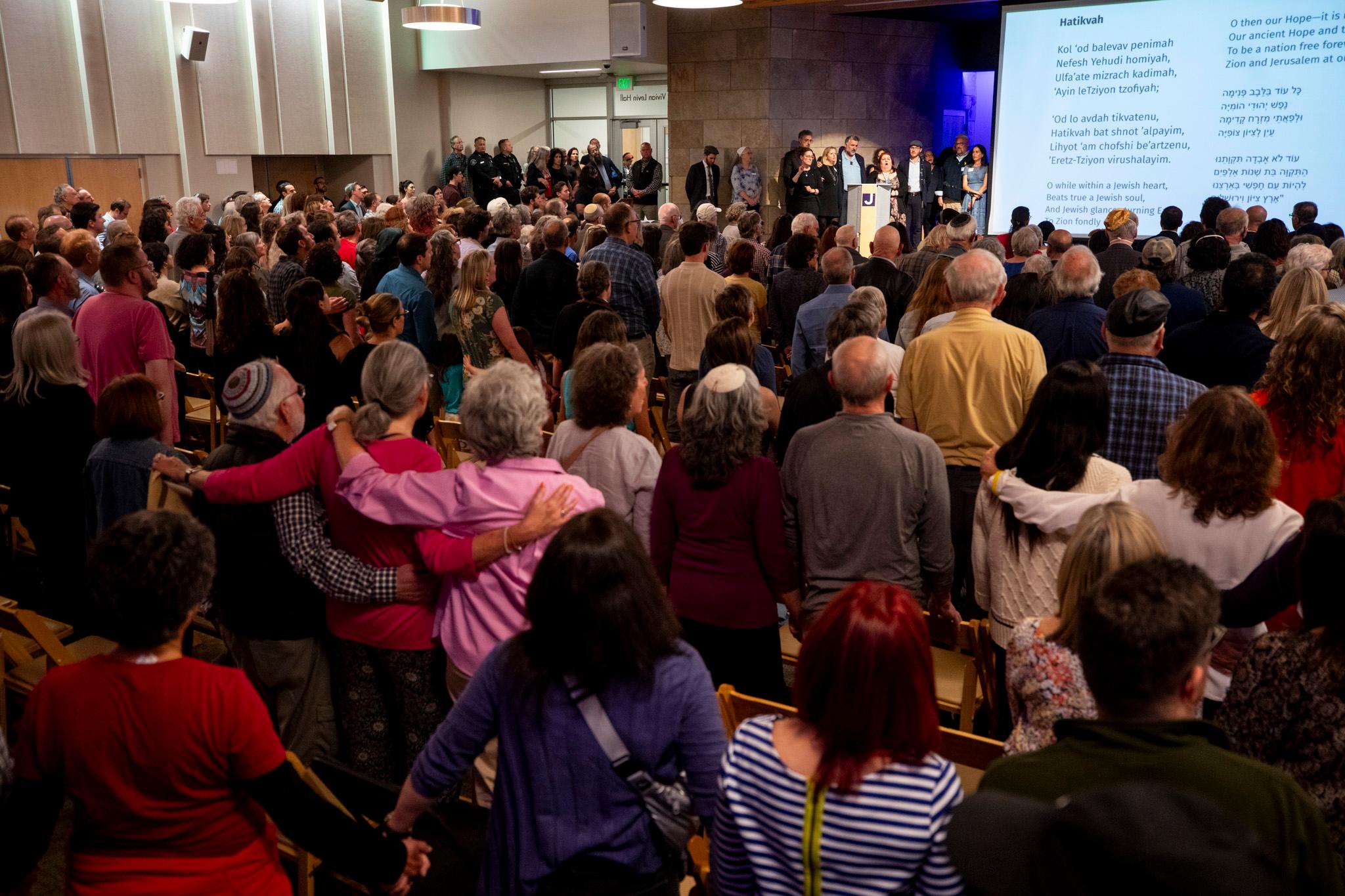
“We convene today in the shadow of a deeply unsettling trend, the continuing rise in antisemitic attacks across the United States,” GOP Rep. August Pfluger of Texas said as he opened a House Homeland Security subcommittee hearing on “The Rise of Anti-Israel Extremist Groups and Their Threat to U.S. National Security” Wednesday.
The hearing came on the heels of the Boulder fire attack, the murder of two Israeli embassy staffers in Washington, D.C., and an arson attack against Pennsylvania Gov. Josh Shapiro.
Pfluger noted that for the fourth consecutive year, antisemitic incidents have risen in all 50 states. “This is not a localized problem, it’s a national crisis,” Pfluger said.
Democratic Rep. Seth Magaziner of Rhode Island agreed. He said he’s experienced antisemitic harassment in the United States, as have other members of his family.
“I am concerned about our government’s ability to counter the rise of antisemitic violence. I want to make sure our government is doing everything it can to stamp this out and keep people safe,” he said.
Colorado Republican Rep. Gave Evans, who serves on the committee, noted that in 2024, Colorado had the highest number of recorded incidents of antisemitism in the state’s history. “[Colorado is] now ninth in the nation. Antisemitism has no home in Colorado or the nation,” he said.
According to the Anti-Defamation League, there were 279 incidents recorded in Colorado last year, including harassment, vandalism and two incidents of assault. The primary hotspots were Denver, Boulder and Aurora. There were also 61 incidents of reported distribution of antisemitic white supremacist propaganda.
Witnesses at the hearing had several suggestions for countering antisemitism and the threat of violence. The recommendations included the creation of a national strategy to combat targeted violence against the Jewish community, increased funding for aa nonprofit security grant program to protest at risk houses of worship and community centers; empowering an interagency task force to combat antisemitism; improving investigatory actions at the federal, state and local level; and addressing hate and antisemitism on digital platforms.
Panelist James Carafano with The Heritage Foundation, a conservative think tank, a conservative think tank, suggested that if an immigration enforcement tool known as a 287(g) program had been in place in Boulder, “it is very likely that that perpetrator would’ve been found and removed from the country.”
Carafano, however, did not explain how it would have applied.
The 287(g) program allows state and local agencies to work together to enforce some aspects of immigration law, either through serving immigration warrants in jail, having local agencies enforce immigration laws in the community or identifying and processing immigrants subject to removal following an arrest. There were no warrants out for the Boulder suspect prior to the attack and he had never been arrested. The Boulder suspect did try to apply to purchase a gun and was rejected. Colorado authorities sent that information to DHS, but it was not acted on.
If there was bipartisan agreement that antisemitism is on the rise, there was no agreement on the cause or the solutions.
Magaziner called for more federal funding to tackle the issue and to protect synagogues and other Jewish centers.
But he also questioned the Trump Administration’s commitment to addressing the problem, noting DOGE fired staff at DHS, the Department of Justice and at the Department of Education that investigated cases of antisemitic hate.
He also questioned the hiring of a 22-year-old with no experience to lead DHS’s terror prevention office.
“I’m genuinely concerned that this sends a signal about how serious the administration actually is in doing the work of stamping out antisemitic hate and violence. Words are nice, but actions are important and personnel is important as well,” Magaziner said.
He also called for addressing hate online, which has been a critical issue for Congress in the past.
Meanwhile, Pfluger blamed the problems on a surge of immigrants during the Biden administration. “The danger that we face are not from those trying to get in, but by those already here,” he said.
Pflueger seemed to equate the antisemitic mindset to not upholding law and order. “Whether it’s an anti-ICE protest that turns violent or it’s an antisemitic protest that turns violent, it’s an unwillingness to prosecute those,” he said. “That is way more important than any sort of funding could ever be.”
Democratic Rep. Dan Goldman pushed back. “I hope we can stop trying to place more blame on one or the other, or use it for partisan gain or political points.”
During the first Trump administration, a right-wing extremist killed 11 people at the Tree of Life synagogue and had posted antisemitic comments against a Jewish immigrant aid group. In 2017, during a Unite the Right march in Charlottesville, marchers chanted, “Jews will not replace us.”
Still, Magaziner remained optimistic. “I believe that we can get past this period of divisiveness and hate that we're living in, and we can build a brighter and better future.”







